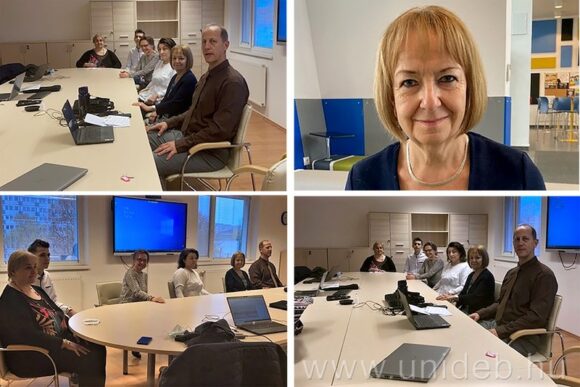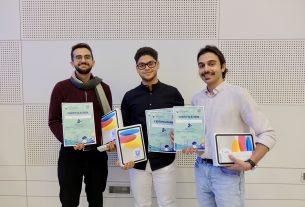What effect does digital education have on the teaching of professional languages in Hungarian universities? The answer to this question was primarily sought at the Conference of Professional Language Teachers, this time hosted by the Institute of Business Communication and Professional Language Studies of the University of Debrecen.
Due to the epidemic, the Conference of Vocational Language Teachers was held on Friday with the participation of the presidency and members of the National Association of Language Teachers and Researchers, where 45 lectures were given in Hungarian and English. In the framework of the meeting, the experts mainly talked about the theoretical and practical issues of vocational language teaching and examinations in Hungarian higher education institutions, as well as the effects of digitalization on them. The first such meeting was held in 2000 at the University of Debrecen.
For example, we spoke in front of almost 80 participants about who is progressing with digital education, what are the university’s priorities in this field, and how they will be able to solve the related tasks,
– Ildikó Tar told hirek.unideb.hu Deputy Director of the Institute of Business Communication and Professional Language Studies of the University of Debrecen, Faculty of Economics.
She explained that the teaching of technical languages used in tourism and economics plays a key role at the Faculty of Economics and that more than 700 people currently take part in such training.
According to Ildikó Tar, due to the epidemic, the widespread use of digital education in the last almost two years has had a positive effect on the development of electronic textbooks and teaching materials, for example. Sharing the materials prepared by the instructors and presenting the presentations compiled by the students has also become significantly easier in the groups involved in such distance learning. In addition, curricula and professional collections, for example, can be easily retrieved from databases.
Among the negatives of digital education, the deputy director mentioned, for example, that the internet sometimes stalls due to congestion.
Experience has also shown that it is also a serious problem that if everyone is sitting at the computer at home and does not understand something of what the teacher says in class, they dare to ask back much less than in the classroom. Instructors often complain that non-verbal communication is more difficult to follow in a situation with larger groups. The conference also helped to solve these problems, Ildikó Tar added.
Lectures at the Conference of Language Teachers will be published later in the online journal Porta Lingua 2022.
hirek.unideb.hu












